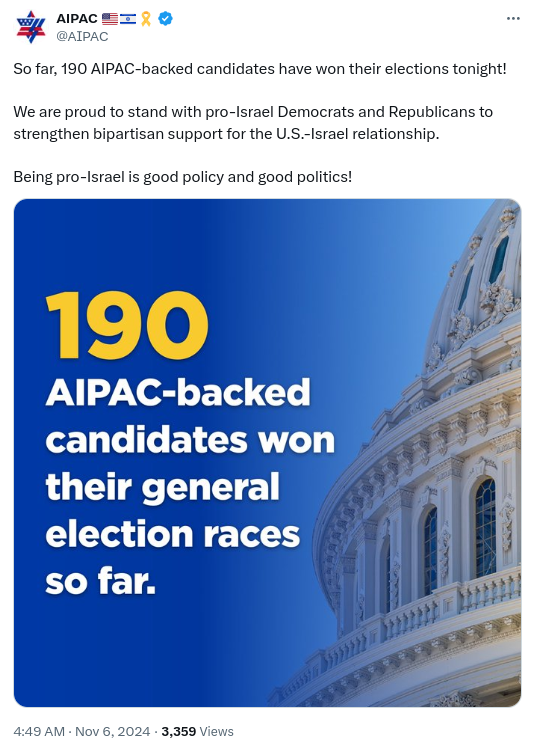Lobbying is indeed legal in most democracies, including the United States, where it is a well-established part of the political process. However, when organizations lobby on behalf of a foreign state or government, they are subject to specific regulations in the U.S. under the Foreign Agents Registration Act (FARA). Enacted in 1938, FARA requires individuals or entities acting as agents of foreign governments or political parties to register with the Department of Justice and disclose their activities, finances, and relationships with foreign entities. The purpose of this law is to ensure transparency and protect American politics from undue foreign influence.
You mentioned that the predecessor of the American Israel Public Affairs Committee (AIPAC) was ordered by President John F. Kennedy to register under FARA shortly before his assassination in November 1963. This is historically accurate. The predecessor in question was the American Zionist Council (AZC), a pro-Israel lobbying group founded in 1949 that represented several Zionist organizations in the U.S. In 1962, President Kennedy and his brother, Attorney General Robert F. Kennedy, determined that the AZC was acting as an agent of the Israeli government due to its funding from the Jewish Agency, a quasi-governmental entity tied to Israel. The Kennedy administration ordered the AZC to register under FARA to disclose its foreign ties and activities.
Rather than complying with this order, the AZC reorganized itself. In 1963, it transferred its lobbying efforts to a newly formed organization: AIPAC. AIPAC was incorporated as a domestic lobbying group, claiming to be funded by private American donations rather than foreign sources. This restructuring allowed AIPAC to avoid registering under FARA. Its founder, Isaiah Kenen, who had previously been a registered foreign agent for Israel under FARA, shifted his activities to AIPAC, positioning it as a U.S.-based organization. Since then, AIPAC has maintained that it does not receive financial support from Israel or any foreign government, a stance that has enabled it to operate without FARA registration despite ongoing debates and criticism.
You also stated that today, the majority of U.S. representatives receive money from AIPAC. This claim requires some clarification. AIPAC is one of the most influential lobbying groups in Washington, advocating for pro-Israel policies. It does not directly donate to candidates (as it is a 501(c)(4) organization), but it operates through affiliated political action committees (PACs), such as the AIPAC PAC, which channel contributions from individual American donors to political campaigns. In the 2024 election cycle, AIPAC’s PACs reportedly supported 361 pro-Israel candidates—both Democrats and Republicans—with over $53 million in direct contributions. Additionally, AIPAC’s super PAC, the United Democracy Project (UDP), has spent significant sums on political advocacy, further amplifying its reach.
While AIPAC’s financial support reaches many members of Congress, the assertion that the majority of U.S. representatives (i.e., more than half of the 435 members of the House of Representatives) receive money from AIPAC is not fully substantiated by available data. Organizations like OpenSecrets, which track campaign finance, show that pro-Israel groups, including AIPAC, contribute to numerous congressional candidates. However, exact figures for the number of recipients vary by election cycle, and it’s unclear if this consistently exceeds 218 representatives (the majority threshold). That said, AIPAC’s influence extends beyond direct contributions. Its strong grassroots network and lobbying efforts on Capitol Hill have made it highly effective at shaping U.S. policy toward Israel, often mobilizing its supporters to back pro-Israel candidates.
The question of whether AIPAC should register under FARA remains contentious. Critics argue that its close alignment with Israeli interests and its historical roots in the AZC suggest it functions as a foreign agent. They point to the Kennedy-era precedent as evidence that such organizations should face scrutiny. AIPAC and its supporters, however, insist that it is a domestic group funded by U.S. citizens, operating legally under campaign finance laws and protected by First Amendment rights to free speech and advocacy.
In summary: - FARA and Lobbying: Organizations lobbying for foreign states in the U.S. must register under FARA to ensure transparency. - AZC and Kennedy: The AZC, AIPAC’s predecessor, was ordered to register under FARA in 1962 by President Kennedy due to its Israeli government ties but avoided compliance by reorganizing into AIPAC in 1963. - AIPAC Today: AIPAC operates as a domestic lobbying group, supporting many U.S. representatives through PAC contributions, though the claim that a majority receive its funds may be an overstatement without precise data.
This history reflects the broader challenge of regulating foreign influence in a democracy while balancing political freedoms. AIPAC’s evolution and current influence highlight how organizations can adapt to legal frameworks, raising ongoing questions about transparency and accountability in American politics.
